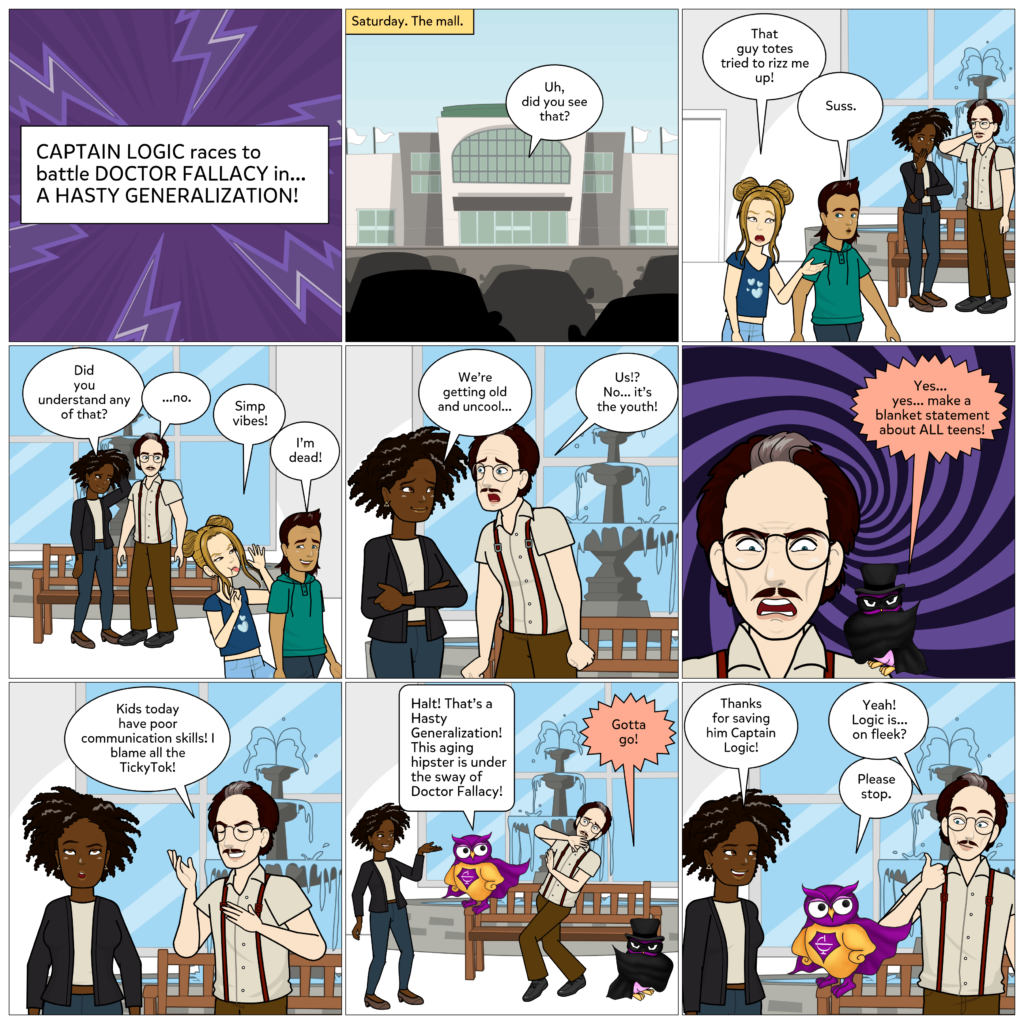The hasty generalization fallacy is sometimes called the over-generalization fallacy. This fallacy occurs when an argument is based on a body of evidence that is simply too small. For instance, if your uncle was a lifelong cigarette smoker who lived into his nineties, it would be a hasty generalization to claim that smokers have a high life expectancy based on such limited evidence.
In our comic below, you’ll see how a hasty generalization can occur in everyday life:

For a screen reader compatible slideshow version of the comic, please click through the below images:
In our example, the hasty generalization has pretty low stakes, but the fallacy can occur in much larger contexts. In statistics or polling, for instance, a hasty generalization might happen when research has too small of a sample size. Faulty data like that could result in poor policy decisions that don’t serve the needs of the community.
Hasty generalizations can also lead to stereotyping. When people make claims based on limited evidence, the results can not only be wrong but dangerous. It’s really easy to fall into this kind of thinking, so we must work to avoid it. We must make sure our research is representative and that our thinking is not narrow.
